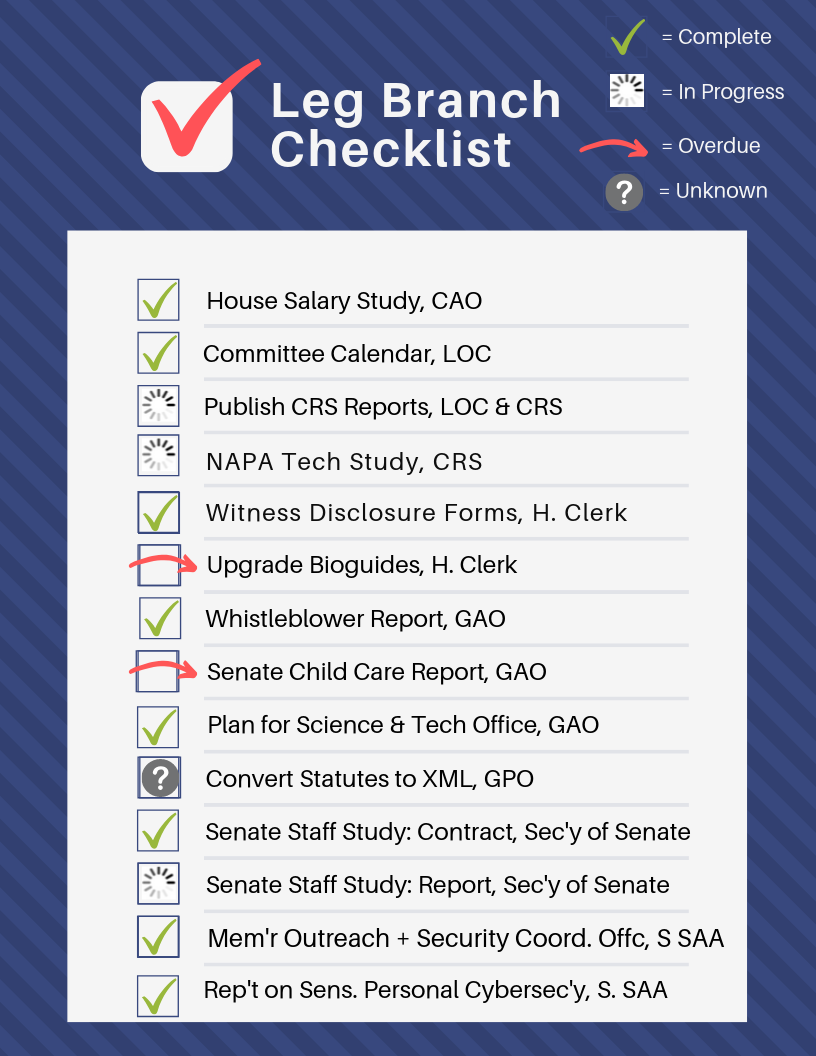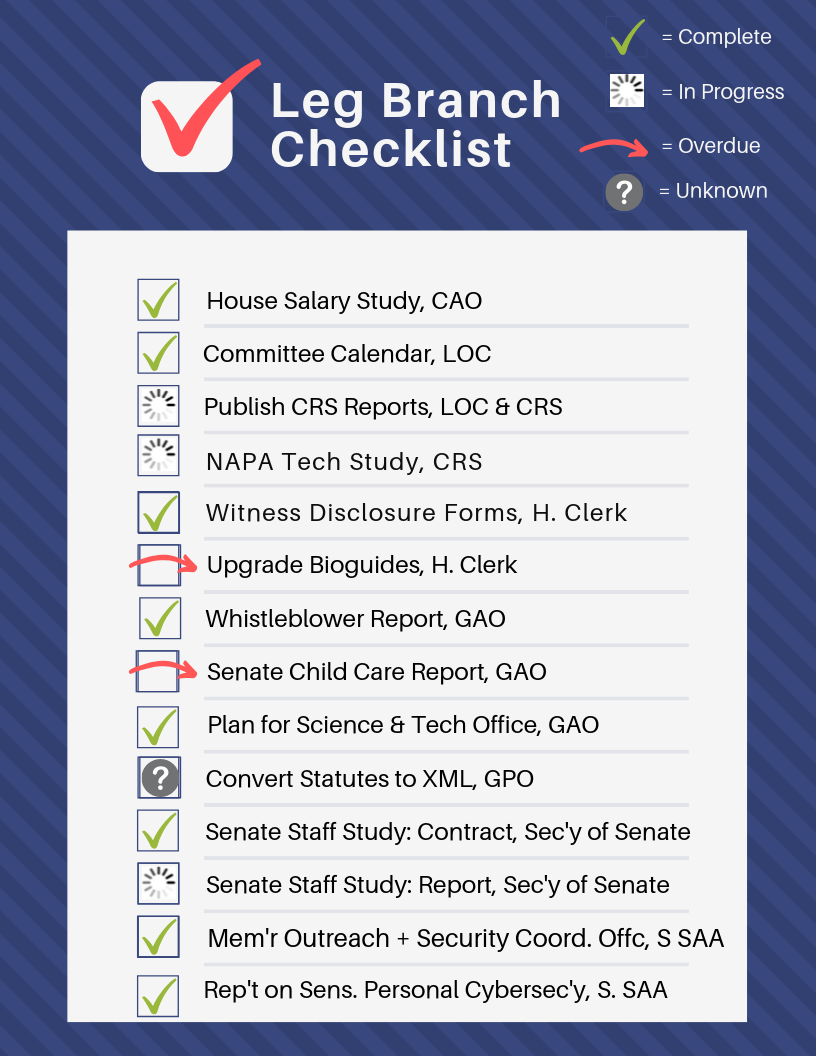ELIJAH CUMMINGS
Elijah Cummings has died. He rightly has been lauded for his many achievements and common decency; we remember him as a champion for open and accountable government and his tireless efforts to build a more perfect union. He will lie in state in the rotunda on Thursday; his funeral is Friday. Thank you, Mr. Chairman.
CONGRESS IN BRIEF
The House is in for the next 2 weeks, the Senate for the next 5.
• Hugh Halpern was nominated to be the new Director of the Government Publishing Office. He had served as Republican floor director and previously as staff director for the House Rules Committee. Mr. Halpern played a significant role in bringing transparency to the House Rules Committee and modernizing the House’s rules. I’ve had the pleasure of working with him over the years and found him smart, capable, engaged, curious, patient, and genuine.
• The hottest ticket in town last week was the 7th annual Legislative Data and Transparency Conference. We will be covering it more fully in an upcoming article, but we’ve hit the highlights below. We particularly enjoyed the quarterly update from the Bulk Data Task Force. This amazing working group (that welcome engagement from all quarters) brings together experts from across the legislative branch to improve how Congress works, focusing on technology and transparency. Continue reading “Forecast for October 21, 2019”

